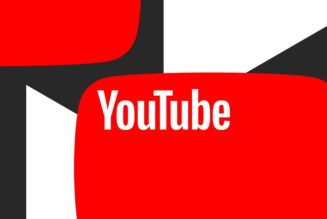
Snap knows it can do better. The company reported earnings results for the second quarter of 2022 this afternoon, and the numbers show a company that’s continuing to grow its users and revenue — but at a much slower rate than it used to.
“Our financial results for Q2 do not reflect the scale of our ambition,” the company wrote in a note to investors. “We are not satisfied with the results we are delivering.”
The message was part of a rallying cry to investors that essentially says hang tight, we’re working on it. To turn things around, Snap is promising to “recalibrate” its hiring, goals, and investments. And, in a splashier move, the company said it had signed Snap co-founders Evan Spiegel and Bobby Murphy, the company’s CEO and CTO, to stick around for another four years, through the end of 2026.
Spiegel and Murphy will be paid $1 per year with no additional equity. They will, however, be incentivized with the promise of a stock split should Snap’s share price reach $40 within the next 10 years, up from its current value of around $16. Snap says the split would allow Spiegel and Murphy to sell non-voting shares of Snap, allowing them to hold onto their voting shares and retain control over the company.
This rallying cry isn’t coming because Snap is falling apart. The company made $1.11 billion in revenue during Q2, up from $982 million in 2021, and it added 15 million more users, bringing it to 347 million.
The problem for Snap is that it’s simultaneously dealing with a shaky economic environment and the fallout of an advertising market that was upended by Apple last year when the company dramatically limited the type of user tracking that advertisers had long relied on. “Platform policy changes have upended more than a decade of advertising industry standards,” Snap writes. As a result, Snap’s revenue growth has been slowing, and its net income has plummeted to a loss of $422 million from a loss of $152 million during Q2 of last year.
Snap is now working to pick up the pieces on advertising and find other means of revenue growth. The company is trying to improve its own ad effectiveness measurement tools and personalization options. It’s also seeking out new revenue sources, like the newly launched power user subscription service Snapchat Plus. The service already seems to be having some success. The analytics firm Sensor Tower found that in-app spending grew 136x in the three weeks since launch compared to the three weeks prior, growing to $6 million in purchases.
There are likely to be some bigger disruptions inside Snap as it tries to turn its performance around. The company warns twice in its letter that it will reduce hiring, adjust its goals, and reevaluate its spending. Two things that remain off the chopping block, however, are investments in AR and growing the Snapchat community.
Even with all of this, Snap warns investors not to expect immediate improvements. It isn’t providing guidance for Q3 and says existing revenue is flat year over year.
“We believe it will likely take some time before we see significant improvements,” the company writes.
Snap’s results could also signal problems ahead for Meta, which is reporting its Q2 earnings next week. In recent weeks, the company’s leadership has warned of “serious times” and “fierce” headwinds while slashing hiring plans for the year. The company is rapidly revamping both Instagram and Facebook to better compete with TikTok and retain user interest, while also dealing with the same advertising issues Snap is facing — just at a much bigger scale.









